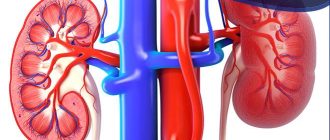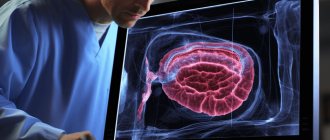 Understanding the Potential Risks and Side Effects of an Upper GI Barium Swallow Test
Understanding the Potential Risks and Side Effects of an Upper GI Barium Swallow Test
An upper gastrointestinal (GI) barium swallow test is a diagnostic procedure used to evaluate the structure and function of the esophagus, stomach, and small intestine. It involves ingesting a barium solution and then undergoing a series of X-ray images. While this test can provide valuable information for diagnosing various gastrointestinal conditions, it is important to be aware of the potential risks and side effects associated with it.
One of the main risks of an upper GI barium swallow test is the possibility of an allergic reaction to the barium solution. Although rare, some individuals may experience symptoms such as hives, itching, or difficulty breathing. It is crucial to inform your healthcare provider if you have a history of allergies, especially to contrast agents or iodine, to minimize the risk of an adverse reaction.
Another potential side effect of this procedure is constipation. The barium solution used during the test can cause the stool to harden, leading to difficulty passing bowel movements. It is recommended to increase fluid intake and consume a high-fiber diet after the test to alleviate this side effect. In some cases, a laxative may be prescribed to help relieve constipation.
In rare instances, the barium solution may cause an obstruction in the gastrointestinal tract. This can occur if the barium thickens and hardens, blocking the passage of food or stool. Symptoms of an obstruction may include severe abdominal pain, bloating, and vomiting. If you experience these symptoms after the test, it is important to seek immediate medical attention.
Overall, while the upper GI barium swallow test is generally safe, it is essential to understand and discuss the potential risks and side effects with your healthcare provider. They can provide you with the necessary information and guidance to ensure a safe and successful procedure.
Radiation Exposure Risks
The upper GI barium swallow test involves the use of X-rays to create images of the upper gastrointestinal tract. While X-rays are generally considered safe, they do involve exposure to radiation. Although the amount of radiation used in an upper GI barium swallow test is relatively low, it is still important to be aware of the potential risks.
Exposure to radiation carries a small risk of developing cancer. The risk is generally low, but it is higher in individuals who are exposed to higher levels of radiation over a long period of time. It is important to note that the benefits of the upper GI barium swallow test often outweigh the potential risks, especially when the test is necessary for diagnosing certain medical conditions.
To minimize the risk of radiation exposure, radiology technicians take precautions such as using lead shields to protect sensitive areas of the body from unnecessary radiation. It is also important for patients to inform their healthcare provider if they are pregnant or suspect they may be pregnant, as radiation can potentially harm the developing fetus.
It is important to remember that the risks associated with radiation exposure are generally low and outweighed by the benefits of the upper GI barium swallow test in most cases. However, it is always advisable to discuss any concerns or questions about radiation exposure with a healthcare provider before undergoing the test.
| Radiation Exposure Risks |
| – Small risk of developing cancer |
| – Higher risk for individuals exposed to high levels of radiation over a long period of time |
| – Precautions taken by radiology technicians to minimize radiation exposure |
| – Potential harm to developing fetus, so pregnant patients should inform healthcare provider |
Amount of Radiation Used
The upper GI barium swallow test involves the use of a small amount of radiation to obtain clear images of the upper gastrointestinal tract. The radiation is in the form of X-rays, which are a type of electromagnetic radiation.
The amount of radiation used during an upper GI barium swallow test is considered to be relatively low. The American College of Radiology (ACR) and the Food and Drug Administration (FDA) have set guidelines to ensure that the radiation dose is kept as low as reasonably achievable while still obtaining the necessary diagnostic information.
During the test, the patient is exposed to a small amount of radiation, which is emitted by the X-ray machine. The X-rays pass through the body and are absorbed by the barium solution, allowing the radiologist to visualize the upper gastrointestinal tract on the images.
It is important to note that the radiation exposure from an upper GI barium swallow test is generally considered to be safe. The benefits of obtaining a clear diagnosis and the potential to detect serious conditions outweigh the minimal risks associated with the radiation exposure.
| Risk | Description |
| Radiation exposure | The use of X-rays during the test exposes the patient to a small amount of radiation. |
| Potential side effects | There is a small risk of an allergic reaction to the barium solution or difficulty swallowing during the test. |
It is important for healthcare providers to use the lowest effective radiation dose and to follow proper safety protocols to minimize the risks associated with radiation exposure. Patients should also inform their healthcare provider if they are pregnant or breastfeeding, as special precautions may need to be taken.
Lifetime Risk Estimates
It is important to understand that the risks associated with an upper GI barium swallow test are generally very low. However, as with any medical procedure, there is always a small possibility of adverse effects.
Allergic reactions: While rare, some individuals may have an allergic reaction to the barium sulfate contrast material used during the test. Symptoms can include itching, hives, difficulty breathing, or swelling of the throat or tongue. If you have a known allergy to barium or other contrast materials, it is important to inform your healthcare provider before the test.
Aspiration: Aspiration occurs when the barium sulfate contrast material accidentally enters the airway instead of the esophagus. This can potentially lead to respiratory issues or lung infection. However, the risk of aspiration during an upper GI barium swallow test is extremely low, especially if the test is performed by an experienced healthcare professional.
Radiation exposure: An upper GI barium swallow test involves the use of X-rays to capture images of the digestive system. While the amount of radiation used is considered safe, there is still a small risk of long-term effects from repeated exposure to X-rays over a lifetime. However, the benefits of the test usually outweigh the potential risks.
Discomfort or nausea: Some individuals may experience temporary discomfort or nausea during or after the test. This is typically due to the ingestion of the barium sulfate contrast material and usually subsides quickly. Drinking plenty of fluids after the test can help alleviate any discomfort or nausea.
It is important to discuss any concerns or questions you may have about the risks and potential side effects of an upper GI barium swallow test with your healthcare provider. They will be able to provide you with personalized information and address any specific concerns you may have.
Specific Sensitive Groups
While an upper GI barium swallow test is generally considered safe, there are certain groups of people who may be more sensitive to the procedure or at higher risk of experiencing side effects. These groups include:
- Pregnant women: The developing fetus may be at risk from exposure to radiation during the procedure. Pregnant women should consult with their healthcare provider to determine the potential risks and benefits.
- Children: Children may be more sensitive to radiation and may require a lower dose. The procedure should be performed under the guidance of a pediatric radiologist.
- People with kidney problems: The contrast material used during the test may be harmful to individuals with kidney problems. If you have kidney issues, your healthcare provider should be aware and may need to adjust the procedure or use an alternative imaging method.
- People with a history of allergies: Some individuals may be allergic to the contrast material used in an upper GI barium swallow test. If you have a known allergy, inform your healthcare provider before the procedure.
- Individuals with swallowing difficulties: If you have difficulty swallowing, the procedure may be more challenging and potentially uncomfortable. Your healthcare provider may need to take extra precautions and make accommodations to ensure your safety and comfort during the test.
It is important to discuss any potential risks or concerns with your healthcare provider before undergoing an upper GI barium swallow test. They can provide you with personalized advice and recommendations based on your individual circumstances.
Common Barium-Related Side Effects
While an upper GI barium swallow test is generally considered safe, there are some common side effects that may occur as a result of the procedure. These side effects are usually temporary and go away on their own without any medical intervention. However, it is important to be aware of them and report any concerns to your healthcare provider.
- Constipation: Barium can sometimes cause constipation, which can lead to discomfort and difficulty passing stools. It is important to drink plenty of fluids and eat a fiber-rich diet to help prevent or relieve constipation after the test.
- Nausea: Some people may experience mild nausea or an upset stomach after swallowing the barium. This can usually be alleviated by resting and avoiding heavy meals for a few hours after the test.
- Abdominal Cramping: In some cases, barium may cause mild abdominal cramping or discomfort. This is usually temporary and should resolve within a few hours.
- Allergic Reactions: Although rare, some individuals may have an allergic reaction to the barium. Symptoms of an allergic reaction may include hives, itching, difficulty breathing, or swelling of the face, lips, tongue, or throat. If you experience any of these symptoms, it is important to seek immediate medical attention.
- Barium Retention: In rare cases, the barium may not pass through the digestive system as quickly as expected, leading to a condition called barium retention. Symptoms of barium retention may include abdominal pain, bloating, and constipation. If you experience these symptoms after the test, it is important to contact your healthcare provider.
It is important to remember that these side effects are relatively uncommon and the benefits of the upper GI barium swallow test usually outweigh the risks. Your healthcare provider will discuss the potential risks and benefits of the test with you before it is performed.
Barium Coating the GI Tract
During an upper GI barium swallow test, the patient is required to drink a liquid containing barium sulfate. This liquid coats the lining of the gastrointestinal (GI) tract, including the esophagus, stomach, and small intestine. The barium coating helps to highlight the structures of the GI tract on X-ray images, allowing the radiologist to evaluate the function and anatomy of the upper digestive system.
Barium sulfate is a white, chalky substance that is not absorbed by the body. It passes through the digestive system relatively unchanged and is eliminated in the stool. The barium coating provides a contrast medium that helps to visualize any abnormalities or blockages in the GI tract, such as tumors, ulcers, strictures, or reflux.
The barium coating procedure is generally safe and well-tolerated by most patients. However, it is important to note that there are some potential risks and side effects associated with the use of barium sulfate. These may include allergic reactions, aspiration, constipation, or barium impaction.
In rare cases, some patients may experience an allergic reaction to barium sulfate. Symptoms of an allergic reaction may include hives, itching, difficulty breathing, or swelling of the face, lips, tongue, or throat. If any of these symptoms occur, immediate medical attention should be sought.
In some cases, there is a risk of aspiration during the barium coating procedure. Aspiration occurs when the liquid enters the airways instead of the esophagus. This can lead to coughing, choking, or difficulty breathing. Patients with a history of aspiration or swallowing difficulties may be at an increased risk and should be closely monitored during the test.
Another potential side effect of the barium coating is constipation. Barium sulfate is not absorbed by the body and can cause the stool to become hard and difficult to pass. It is important to drink plenty of fluids after the test to help flush the barium out of the system and prevent constipation.
In rare cases, barium impaction can occur. This happens when the barium coating becomes lodged in the GI tract, causing a blockage. Symptoms of barium impaction may include severe abdominal pain, cramping, nausea, vomiting, or the inability to pass stool or gas. If any of these symptoms occur, medical attention should be sought immediately.
The barium coating of the GI tract during an upper GI barium swallow test is a necessary step to visualize the upper digestive system. While generally safe, there are some potential risks and side effects associated with the use of barium sulfate. Patients should be informed of these risks and monitored closely during and after the procedure to ensure their safety and well-being.
Constipation Issues
Constipation is a potential side effect of an upper GI barium swallow test. The barium solution used during the test can cause the stool to become hard and difficult to pass. This can lead to discomfort and pain in the abdomen.
It is important to drink plenty of fluids after the test to help prevent constipation. Increasing fiber intake can also help soften the stool and promote regular bowel movements. Including foods such as fruits, vegetables, and whole grains in the diet can be beneficial.
If constipation persists or becomes severe, it is recommended to consult a healthcare provider. They may suggest using over-the-counter laxatives or stool softeners to relieve symptoms. It is important to follow the healthcare provider’s instructions and not use these medications for an extended period of time without medical supervision.
In rare cases, constipation after an upper GI barium swallow test may indicate a more serious issue, such as an intestinal blockage. If symptoms worsen or additional symptoms develop, such as severe abdominal pain or vomiting, immediate medical attention should be sought.
Overall, while constipation can occur as a side effect of an upper GI barium swallow test, it is usually temporary and can be managed with lifestyle changes and over-the-counter medications if necessary.
White or Pale Stools
One potential side effect of an upper GI barium swallow test is the occurrence of white or pale stools. This can happen due to the presence of barium in the digestive system. Barium is a white, chalky substance that is used to coat the lining of the esophagus, stomach, and small intestine during the procedure. As the barium passes through the digestive system, it can temporarily change the color of the stool.
If you notice that your stools have become white or pale after undergoing an upper GI barium swallow test, it is important to inform your healthcare provider. While this side effect is usually temporary and resolves on its own, it is important to rule out any other underlying causes of pale stools, such as liver or gallbladder problems.
Your healthcare provider may recommend monitoring your stools for a few days and drinking plenty of fluids to help flush out the barium from your system. In some cases, they may order additional tests or imaging studies to further evaluate the cause of the change in stool color.
It is important to note that experiencing white or pale stools after an upper GI barium swallow test is relatively uncommon. Most people do not experience any changes in stool color as a result of the procedure.
Nausea and Vomiting
One potential side effect of an upper GI barium swallow test is nausea and vomiting. This can occur due to the ingestion of the barium contrast material, which can be irritating to the stomach. Some individuals may experience an upset stomach or feelings of queasiness during or after the procedure.
In most cases, the symptoms of nausea and vomiting are mild and temporary. They typically resolve on their own within a short period of time. However, in rare cases, more severe symptoms may occur, such as persistent vomiting or dehydration. If these symptoms occur, it is important to seek medical attention immediately.
To help reduce the risk of nausea and vomiting, it is recommended to follow any pre-test instructions provided by the healthcare provider. These instructions may include fasting for a certain period of time before the test or avoiding certain medications. Additionally, it is important to communicate any concerns or history of nausea and vomiting to the healthcare provider prior to the test.
During the test, the healthcare provider may offer strategies to help alleviate any feelings of nausea, such as taking deep breaths or changing positions. It is important to communicate any discomfort or symptoms experienced during the test to the healthcare provider, as they can provide assistance and support.
| Common Causes of Nausea and Vomiting | Preventive Measures |
| Barium contrast material ingestion | Follow pre-test instructions provided by the healthcare provider |
| Anxiety or stress | Practice relaxation techniques |
| Motion sickness | Avoid excessive movement during the test |
| Medication side effects | Inform healthcare provider of any medications being taken |
Overall, nausea and vomiting are potential side effects of an upper GI barium swallow test. While these symptoms are usually mild and temporary, it is important to communicate any concerns or severe symptoms to the healthcare provider.
Uncommon Allergic Reactions
In rare cases, some individuals may have an allergic reaction to the barium contrast material used during an upper GI barium swallow test. Allergic reactions occur when the body’s immune system overreacts to a substance, in this case, the barium contrast material.
Symptoms of an allergic reaction may include:
- Hives: Raised, itchy welts on the skin
- Rash: Red, itchy patches on the skin
- Swelling: Swelling of the face, lips, tongue, or throat
- Difficulty breathing: Shortness of breath, wheezing, or coughing
- Dizziness: Feeling lightheaded or faint
- Nausea and vomiting: Upset stomach and vomiting
If you experience any of these symptoms during or after the procedure, it is important to notify the medical staff immediately. They can provide prompt medical attention and take appropriate measures to manage the allergic reaction.
In most cases, allergic reactions to barium are rare and can be effectively managed with proper medical care. However, it is essential to inform the healthcare provider about any known allergies or previous allergic reactions to contrast materials or other substances before undergoing an upper GI barium swallow test.
If you have a history of severe allergic reactions or multiple allergies, your healthcare provider may take additional precautions or suggest alternative procedures to avoid any potential risks.
Remember, while uncommon, allergic reactions can occur during an upper GI barium swallow test. Being aware of the symptoms and informing the medical staff about any allergies or previous reactions can help ensure a safe and successful procedure.
Rash, Itching, or Hives
If you experience a rash, itching, or hives after undergoing an upper GI barium swallow test, it is important to notify your healthcare provider immediately. These symptoms may indicate an allergic reaction to the barium sulfate contrast material used during the procedure.
An allergic reaction can occur in individuals who are sensitive or allergic to barium sulfate. The reaction may manifest as a rash, itching, or hives on the skin. It is important to note that these symptoms can range from mild to severe and may require immediate medical attention.
If you develop a rash, itching, or hives, your healthcare provider will assess the severity of your symptoms and determine the appropriate course of action. This may involve administering medications to alleviate the allergic reaction or providing other forms of medical intervention.
It is essential to inform your healthcare provider about any known allergies or sensitivities you have, as well as any previous reactions to contrast materials or medications. This information will help your healthcare provider take necessary precautions and ensure your safety during the procedure.
While rash, itching, or hives are potential side effects of an upper GI barium swallow test, it is important to remember that not everyone will experience these symptoms. Your healthcare provider will discuss the potential risks and side effects of the procedure with you before it is performed.
If you have any concerns or questions about the risks and potential side effects of an upper GI barium swallow test, do not hesitate to discuss them with your healthcare provider. They are best equipped to provide you with the information and guidance you need to make informed decisions about your healthcare.
Anaphylaxis
Anaphylaxis is a severe allergic reaction that can occur in rare cases during an upper GI barium swallow test. It is a life-threatening condition that requires immediate medical attention. Anaphylaxis can cause symptoms such as difficulty breathing, swelling of the face and throat, rapid heartbeat, hives, and a sudden drop in blood pressure.
If anaphylaxis occurs during an upper GI barium swallow test, the medical staff present will be prepared to handle the situation. They will administer epinephrine, a medication that can quickly relieve the symptoms of anaphylaxis. In some cases, the test may need to be stopped to ensure the person’s safety.
It is important to inform the medical staff of any known allergies before undergoing an upper GI barium swallow test. This will help them take necessary precautions and be prepared in case an allergic reaction occurs. If a person has a history of severe allergic reactions or anaphylaxis, it may be necessary to explore alternative testing methods that do not involve the use of barium.
While anaphylaxis is a rare occurrence during an upper GI barium swallow test, it is essential to be aware of the potential risk. Understanding the symptoms and being prepared can help ensure a safe testing experience for individuals undergoing this procedure.
Treatment for Allergies
Allergies can cause a range of symptoms, from mild discomfort to severe reactions. Fortunately, there are several treatment options available to help manage and alleviate allergy symptoms.
1. Avoidance
The most effective way to prevent allergy symptoms is to avoid exposure to allergens. This may involve making changes to your environment, such as using hypoallergenic bedding, keeping windows closed during high pollen seasons, and avoiding certain foods or substances that trigger your allergies.
2. Medications
Over-the-counter and prescription medications can help alleviate allergy symptoms. These may include antihistamines, decongestants, nasal sprays, and eye drops. It is important to consult with a healthcare professional to determine the appropriate medication and dosage for your specific allergies.
3. Immunotherapy
Immunotherapy, also known as allergy shots, is a long-term treatment option for certain allergies. It involves receiving regular injections of small amounts of allergens, gradually building up a tolerance to them. This can help reduce the severity of allergic reactions over time.
4. Emergency Medications
In cases of severe allergic reactions, emergency medications such as epinephrine may be necessary. These medications are typically used to treat anaphylaxis, a life-threatening allergic reaction that can cause difficulty breathing, swelling, and a drop in blood pressure. It is important to have these medications readily available and to seek immediate medical attention in such situations.
Overall, the treatment for allergies depends on the specific allergens and the severity of the symptoms. It is important to work with a healthcare professional to develop a personalized treatment plan that suits your needs.
Other Rare Risks
In addition to the more common risks and potential side effects mentioned above, there are also some other rare risks associated with an upper GI barium swallow test. These include:
- Allergic reaction to the barium sulfate suspension, which can cause symptoms such as hives, itching, and difficulty breathing. This is extremely rare but can be serious and requires immediate medical attention.
- Perforation or tear in the esophagus, stomach, or intestines. This is an extremely rare complication that can occur if the barium swallow test is not performed correctly or if there is an underlying condition that weakens the walls of these organs.
- Infection at the site where the contrast material was injected, although this is very uncommon.
- Aspiration of the barium sulfate suspension into the lungs, which can cause pneumonia. This is a rare but potentially serious complication, especially in individuals with swallowing difficulties or a weakened gag reflex.
- Exposure to radiation during the X-ray portion of the test, which carries a small risk of potential long-term effects. However, the benefits of the test usually outweigh this minimal risk.
It is important to note that these rare risks are usually outweighed by the benefits of the upper GI barium swallow test in diagnosing and monitoring certain conditions. However, it is always important to discuss any concerns or questions with your healthcare provider before undergoing the procedure.
Bowel Perforation
Bowel perforation is a potential risk of an upper GI barium swallow test. It occurs when there is a hole or tear in the wall of the bowel. This can lead to leakage of bowel contents into the abdominal cavity, causing infection and inflammation.
The risk of bowel perforation during an upper GI barium swallow test is low, but it is a serious complication that can require immediate medical attention. The use of a barium solution during the test can increase the risk of perforation, as it can cause pressure on the bowel walls. Other factors that may increase the risk include the presence of pre-existing bowel conditions or diseases, such as Crohn’s disease or diverticulitis.
Symptoms of bowel perforation may include severe abdominal pain, fever, chills, nausea, vomiting, bloating, and a change in bowel habits. If you experience any of these symptoms after undergoing an upper GI barium swallow test, it is important to seek medical attention immediately.
In order to reduce the risk of bowel perforation during an upper GI barium swallow test, it is important to follow all preparation instructions provided by your healthcare provider. This may include avoiding certain medications or foods before the test. It is also important to inform your healthcare provider of any pre-existing bowel conditions or diseases you may have.
If bowel perforation does occur during an upper GI barium swallow test, it may require surgical intervention to repair the hole or tear in the bowel wall. Antibiotics may also be prescribed to prevent or treat infection. Recovery time will vary depending on the severity of the perforation and any complications that may arise.
It is essential to weigh the potential risks and benefits of an upper GI barium swallow test with your healthcare provider before undergoing the procedure. They can provide you with more information about the specific risks and help you make an informed decision.
Barium Aspiration
Barium aspiration is a potential risk associated with an upper GI barium swallow test. During the test, the patient is required to swallow a liquid containing barium sulfate, which coats the lining of the esophagus, stomach, and small intestine. In some cases, there is a possibility that the barium may be aspirated into the lungs instead of passing through the digestive system.
This can happen if the patient experiences difficulty swallowing or if there is a problem with the coordination of the muscles involved in swallowing. Barium aspiration can lead to a condition called aspiration pneumonia, which occurs when foreign substances, such as barium, enter the lungs and cause an infection.
Symptoms of barium aspiration may include coughing, wheezing, shortness of breath, chest pain, and fever. If these symptoms occur during or after the barium swallow test, it is important to seek medical attention immediately.
To reduce the risk of barium aspiration, healthcare professionals should ensure that the patient is able to swallow properly before proceeding with the test. They should also closely monitor the patient during the procedure and be prepared to intervene if any signs of aspiration occur.
Barium aspiration is a potential complication of an upper GI barium swallow test. It is important for healthcare professionals to be aware of this risk and take appropriate measures to minimize it. Patients should also be educated about the signs and symptoms of barium aspiration and advised to seek medical attention if they occur.
Severe Obstruction
In rare cases, a severe obstruction can occur as a result of an upper GI barium swallow test. This can happen if the barium liquid or the barium-coated food gets stuck in the esophagus, stomach, or intestines. The obstruction can cause significant discomfort and pain.
If a severe obstruction occurs, it is important to seek immediate medical attention. The medical professionals will assess the situation and take appropriate measures to remove the obstruction. This may involve using an endoscope to remove the barium or performing surgery to clear the blockage.
In some cases, a severe obstruction may require hospitalization and further treatment. It is crucial to monitor the symptoms closely and follow the instructions of the healthcare providers.
Possible signs of a severe obstruction include:
- Severe abdominal pain
- Inability to swallow
- Uncontrollable vomiting
- Difficulty breathing
- Bloody stools or vomit
If any of these symptoms occur after an upper GI barium swallow test, it is important to contact a healthcare professional immediately. They can evaluate the situation and provide the necessary medical intervention.
Interference with Drugs
It is important to inform your healthcare provider about any medications you are currently taking or have recently taken. Some medications can interfere with the results of an upper GI barium swallow test and may need to be temporarily stopped or adjusted.
Specific medications that may interfere with the test include:
- Antacids: These medications can alter the pH levels in the stomach, affecting the visibility of the barium solution.
- Proton pump inhibitors (PPIs): PPIs reduce the production of stomach acid, which can also affect the visibility of the barium solution.
- H2 blockers: These medications reduce the production of stomach acid and may interfere with the test results.
- Antidiarrheal medications: These medications can slow down the movement of barium through the digestive system, making it difficult to obtain accurate images.
- Laxatives: Laxatives can enhance the movement of barium through the digestive system, resulting in less accurate images.
- Pain medications: Some pain medications can slow down the movement of barium or affect the muscle contractions in the digestive system.
Your healthcare provider will provide specific instructions on which medications should be stopped or adjusted prior to the test. It is important to follow these instructions carefully to ensure accurate test results.
Special Considerations
There are certain individuals who may require special considerations when undergoing an upper GI barium swallow test. These include:
Pregnant women: The use of radiation during the test may potentially harm the developing fetus. It is important to inform your healthcare provider if you are pregnant or suspect that you may be pregnant.
Allergic reactions: Some individuals may be allergic to the barium sulfate contrast material used during the test. It is important to inform your healthcare provider if you have any known allergies, particularly to iodine, shellfish, or previous contrast material used during imaging tests.
Medical conditions: If you have a medical condition such as kidney disease, liver disease, or heart problems, you may require special precautions or adjustments to the test. Your healthcare provider will assess your medical history and determine if any modifications are necessary.
Medications: Certain medications may interfere with the test results or pose risks during the procedure. It is important to inform your healthcare provider about any medications you are currently taking, including over-the-counter drugs, supplements, or herbal remedies.
Previous complications: If you have previously experienced complications or adverse reactions during medical imaging tests, it is important to inform your healthcare provider. This information will help them assess the potential risks and benefits of the upper GI barium swallow test in your specific case.
Children: Children may require additional considerations and specialized equipment during the test. The healthcare provider will determine the appropriate approach based on the child’s age, size, and ability to cooperate during the procedure.
Overall, it is essential to communicate any relevant medical history, allergies, or concerns with your healthcare provider before undergoing an upper GI barium swallow test. This will help ensure your safety and optimize the accuracy of the test results.
Issues in Pregnancy
When considering an upper GI barium swallow test during pregnancy, there are several potential issues and risks that need to be taken into account. It is important to carefully weigh the benefits of the test against the potential harm to the developing fetus.
One of the main concerns is the radiation exposure associated with the test. Although the amount of radiation is generally considered to be low and unlikely to cause harm, it is still important to minimize fetal exposure as much as possible. The healthcare provider will take precautions to ensure that the radiation dose is kept as low as reasonably achievable.
Another consideration is the use of contrast material, which contains barium. While barium is generally considered safe for use in diagnostic tests, there is limited information available on its safety during pregnancy. It is important to discuss any concerns with the healthcare provider and weigh the potential risks against the benefits of the test.
Additionally, the positioning required for the test may be uncomfortable for pregnant women, especially in later stages of pregnancy. The healthcare provider will make efforts to ensure the comfort and safety of the patient during the procedure.
Overall, the decision to undergo an upper GI barium swallow test during pregnancy should be made on a case-by-case basis, taking into consideration the specific circumstances and risks involved. It is important to have open and honest discussions with the healthcare provider to make an informed decision.
| Potential Issues in Pregnancy: | Risks: |
| Radiation exposure | Potential harm to the developing fetus |
| Use of contrast material | Limited information on safety during pregnancy |
| Uncomfortable positioning | Discomfort for pregnant women |
Precautions with Medical Conditions
Before undergoing an upper GI barium swallow test, it is important to inform your healthcare provider about any medical conditions you have. Certain conditions may require special precautions or modifications to the test procedure to ensure your safety and minimize any potential risks.
If you have a history of allergies or asthma, it is important to let your healthcare provider know. This is because the barium used during the test can sometimes cause an allergic reaction in sensitive individuals. Your healthcare provider may recommend taking antihistamines or other medications prior to the test to reduce the risk of an allergic reaction.
Individuals with kidney problems or impaired kidney function should also notify their healthcare provider. Barium can be filtered by the kidneys and may accumulate in individuals with kidney issues, potentially causing further damage. Your healthcare provider may need to adjust the amount of barium used during the test or suggest alternative imaging techniques.
If you are pregnant or think you may be pregnant, it is crucial to inform your healthcare provider. Although the radiation exposure from an upper GI barium swallow test is generally considered to be low, it is important to minimize fetal exposure to radiation whenever possible. Your healthcare provider may recommend delaying the test until after pregnancy or consider alternative imaging methods that do not use radiation.
Individuals with a history of swallowing difficulties or gastrointestinal obstructions should also discuss these conditions with their healthcare provider. These conditions can potentially increase the risk of complications during the test, such as aspiration or blockages. Your healthcare provider may need to take additional precautions or consider alternative imaging techniques to ensure your safety.
It is important to remember that these precautions are general guidelines and may vary depending on your specific medical condition and overall health. Always consult with your healthcare provider to determine the most appropriate course of action for your individual circumstances.
Recent Abdominal Surgery
Patients who have recently undergone abdominal surgery may be at an increased risk of complications during an upper GI barium swallow test. The surgical procedure may have altered the anatomy of the digestive system, making it more difficult to perform the test accurately. In addition, the surgical incisions and healing tissues may be sensitive or fragile, which can increase the risk of discomfort or injury during the procedure.
Furthermore, the presence of surgical materials such as sutures or staples in the abdomen may interfere with the imaging process, potentially affecting the quality of the test results. It is important for patients to inform their healthcare providers about any recent abdominal surgeries, including the type of surgery, date, and any ongoing complications or concerns.
Depending on the specific circumstances, the healthcare provider may need to take additional precautions or make adjustments to the test procedure to ensure the safety and comfort of the patient. This may include using alternative imaging techniques or modifying the positioning of the patient during the test. Open communication between the patient and the healthcare team is crucial in order to minimize potential risks and optimize the benefits of the upper GI barium swallow test.
Maximizing Safety
In order to maximize safety during an upper GI barium swallow test, it is important to follow certain precautions and guidelines. These measures can help reduce the risks and potential side effects associated with the procedure.
1. Patient preparation: Before the test, patients should inform their healthcare provider about any allergies, medical conditions, or medications they are taking. This information can help identify any potential risks or complications. Patients may be instructed to fast for a certain period of time before the test to ensure accurate results.
2. Proper positioning: During the test, patients will be positioned on an X-ray table in a way that allows the radiologist to obtain clear images of the upper gastrointestinal tract. It is important for patients to follow the radiologist’s instructions and remain still during the procedure to avoid any unnecessary movement.
3. Radiation exposure: Although the amount of radiation used during an upper GI barium swallow test is considered minimal, healthcare providers should take necessary precautions to minimize exposure. Lead aprons or shields may be used to protect sensitive areas of the patient’s body from radiation.
4. Barium ingestion: Patients will be required to drink a barium solution before the test. It is essential for patients to follow the instructions provided by the healthcare provider regarding the amount and rate of barium ingestion. Drinking the barium too quickly or in excessive amounts can lead to discomfort or potential aspiration.
5. Adverse reactions: Patients should be monitored closely for any signs of adverse reactions during and after the procedure. These may include allergic reactions, such as difficulty breathing or swelling, or other symptoms like nausea, vomiting, or abdominal pain. Immediate medical attention should be sought if any of these symptoms occur.
6. Post-procedure care: After the test, patients may be advised to drink plenty of fluids to help eliminate the barium from their system. It is also important to inform patients about any potential side effects, such as constipation, and provide appropriate guidance or medications to manage these symptoms.
By following these safety measures, healthcare providers can help ensure that an upper GI barium swallow test is performed with minimal risks and potential side effects. It is important for patients to communicate openly with their healthcare provider and follow all instructions to maximize safety during the procedure.
Choosing an Experienced Facility
When it comes to an upper GI barium swallow test, it is important to choose a facility with experienced professionals. The procedure involves ingesting a barium solution and having X-rays taken of the upper gastrointestinal tract. This requires skill and expertise to ensure accurate results and minimize any potential risks.
One way to determine the experience of a facility is to research their reputation. Look for reviews and testimonials from previous patients who have undergone the test at the facility. Positive feedback and success stories indicate that the facility has a track record of providing quality care.
Another important factor to consider is the qualifications of the medical staff. Find out if the facility employs radiologists and technicians who specialize in gastrointestinal imaging. These professionals should have the necessary training and certifications to perform the test safely and effectively.
Additionally, it is crucial to choose a facility that regularly invests in advanced technology and equipment. The quality of the imaging equipment can greatly impact the accuracy of the results. State-of-the-art technology can provide clearer and more detailed images, making it easier for the medical professionals to detect any abnormalities or issues.
Lastly, consider the overall atmosphere and environment of the facility. A clean and well-maintained facility can contribute to a positive experience. Friendly and knowledgeable staff can help alleviate any anxiety or concerns that you may have about the procedure.
By choosing an experienced facility, you can have peace of mind knowing that you are in capable hands. The professionals will guide you through the process and ensure that the upper GI barium swallow test is performed safely and accurately.
Following Preparation Instructions
Before the upper GI barium swallow test, it is important to follow the preparation instructions provided by your healthcare provider. These instructions are designed to ensure that the test is safe and effective. Failure to follow the instructions may result in inaccurate test results or potential complications.
Typically, you will be instructed to fast for a certain period of time before the test. This means that you should not eat or drink anything, including water, for a specified number of hours prior to the procedure. Fasting is necessary to ensure that your stomach and upper digestive system are empty, allowing for clear visualization of the structures during the test.
In addition to fasting, you may also be instructed to stop taking certain medications before the test. This is because some medications can interfere with the results or cause complications during the procedure. It is important to inform your healthcare provider about all the medications you are taking, including prescription and over-the-counter drugs, as well as any herbal supplements.
Your healthcare provider may also provide specific instructions regarding the use of other substances, such as tobacco or alcohol, before the test. These substances can affect the functioning of your digestive system and may interfere with the test results.
It is important to carefully follow all the preparation instructions provided to you. If you have any questions or concerns about the instructions, it is essential to communicate with your healthcare provider. They can provide clarification and address any potential issues.
By following the preparation instructions, you can help ensure that the upper GI barium swallow test is conducted safely and effectively, providing accurate results that can aid in the diagnosis and treatment of gastrointestinal conditions.
Reporting Concerning Symptoms
If you experience any concerning symptoms after undergoing an upper GI barium swallow test, it is important to report them to your healthcare provider immediately. While rare, there are potential risks and side effects associated with this procedure that should not be ignored.
Some concerning symptoms that should be reported include:
- Severe abdominal pain
- Persistent vomiting
- Bloody stools or black, tarry stools
- Difficulty swallowing or breathing
- Unexplained weight loss
- Signs of an allergic reaction, such as hives, itching, or difficulty breathing
- Fever or chills
- Severe or worsening diarrhea
If you experience any of these symptoms or any other unusual or concerning symptoms, do not hesitate to contact your healthcare provider. They will be able to assess your condition and determine the appropriate course of action.
Remember, timely reporting of symptoms is essential for ensuring your health and well-being.
Question and answer:
What is an upper GI barium swallow test?
An upper GI barium swallow test is a procedure used to examine the upper gastrointestinal tract, which includes the esophagus, stomach, and first part of the small intestine. It involves drinking a contrast material called barium, which helps to highlight the organs on X-ray images.
What are the risks of an upper GI barium swallow test?
The risks of an upper GI barium swallow test are generally minimal. However, some potential risks include allergic reactions to the barium contrast material, constipation or bowel obstruction if the barium is not eliminated properly, and aspiration if the patient accidentally inhales the barium during the test.
Are there any side effects of an upper GI barium swallow test?
While side effects are rare, some patients may experience temporary constipation or white stool due to the presence of barium in the digestive system. There is also a small risk of developing an allergic reaction to the barium contrast material.
How long does an upper GI barium swallow test take?
The duration of an upper GI barium swallow test can vary, but it usually takes about 30 to 60 minutes to complete. The actual time may depend on factors such as the patient’s condition and the complexity of the examination.
Can anyone have an upper GI barium swallow test?
In general, most people can safely undergo an upper GI barium swallow test. However, it may not be suitable for individuals with certain medical conditions, such as severe swallowing difficulties, bowel obstruction, or a known allergy to barium. It is important to discuss any concerns or medical history with the healthcare provider before undergoing the test.
What is an upper GI barium swallow test?
An upper GI barium swallow test is a diagnostic procedure that uses X-rays to examine the esophagus, stomach, and small intestine. It involves swallowing a liquid called barium, which coats the lining of these organs and makes them visible on X-ray images.
What are the risks of an upper GI barium swallow test?
The risks of an upper GI barium swallow test are generally minimal. However, there is a slight risk of an allergic reaction to the barium or complications if the barium leaks into the abdominal cavity. In rare cases, there may be a risk of bowel obstruction or aspiration of the barium into the lungs.
What are the potential side effects of an upper GI barium swallow test?
The potential side effects of an upper GI barium swallow test are generally mild and temporary. They may include constipation, nausea, abdominal cramping, or diarrhea. These side effects usually resolve on their own within a few days.
Can a barium swallow test be harmful?
A barium swallow test is generally considered safe and the risks are minimal. However, there is a slight risk of complications such as an allergic reaction to the barium or leakage of the barium into the abdominal cavity. It is important to discuss any concerns or potential risks with your healthcare provider before undergoing the test.






